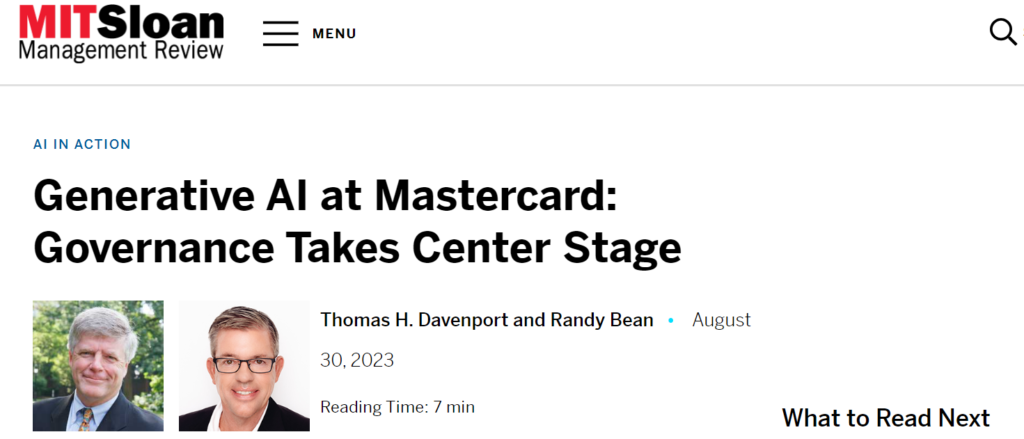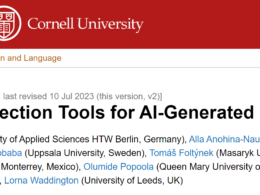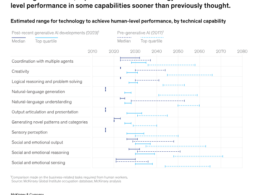the health strategist
institute for strategic health transformation
& digital health
Joaquim Cardoso MSc.
Chief Research and Strategy Officer (CRSO),
Chief Editor and Senior Advisor
September 13, 2023
What is the message?
Generative AI is an exciting yet complex technology that holds significant importance for businesses.
Mastercard, an experienced player in data and AI, is still in the process of formulating its generative AI strategy, indicating that many companies are also exploring this technology.
While generative AI offers opportunities for transformation, its implementation should be approached with careful consideration, involving education, governance, and thorough testing to ensure responsible and beneficial use.

One page summary:
The article discusses the role of generative AI and its integration into Mastercard’s operations, shedding light on the challenges and opportunities associated with this emerging technology.
The article draws parallels between the action-adventure movie “Everything Everywhere All at Once” and generative AI. It describes generative AI as both exciting and confusing, emphasizing its importance as it becomes increasingly relevant in various industries. JoAnn Stonier, the former Chief Data Officer of Mastercard, likened the technology to the movie, highlighting the multifaceted nature of generative AI.
Mastercard, a company with a rich history in data, analytics, and AI, has been exploring the possibilities of generative AI. Despite its extensive experience with AI, the company is still in the process of formulating a comprehensive strategy for generative AI.
This ongoing exploration of generative AI by a well-established player in the field should provide comfort to other organizations and managers navigating the complexities of this technology.
The article outlines the key aspects of Mastercard’s approach to generative AI. This includes a robust methodology and governance process encompassing understanding the data, models, and reviewing the outcomes.
Notably, generative AI often deals with less-structured data like images and text, making it challenging to determine how specific inputs produce particular outputs. Therefore, the review of outcomes becomes crucial, focusing on accuracy, potential biases, toxic language, and overall value to users.
Mastercard has already established some policies for generative AI, promoting responsible innovation while safeguarding sensitive company information.
Unlike some companies that have banned the use of large language models like ChatGPT, Mastercard has encouraged internal exploration of these models, emphasizing that governance is a collective responsibility.
The article emphasizes the need for companies to educate senior executives and board members about generative AI. Mastercard has been proactive in this regard, conducting sessions to discuss various aspects of the technology, including opportunities, regulation, and implementation processes.
The article also highlights that detailed government policies for generative AI in the United States are still evolving, and different capabilities of the technology will likely be subject to distinct regulations.
An interdisciplinary and cross-functional approach is necessary to manage generative AI effectively, involving legal, HR, systems, data engineers, and architects.
While many aspects of generative AI are still under discussion, Mastercard views this period as one of experimentation.
The company aims to learn and eventually benefit from generative AI, primarily focusing on internal productivity improvements at this stage. Customer-oriented use cases are expected to come later, offering personalized data analysis and messages.
Mastercard anticipates using multiple types of language models and human-in-the-loop approaches in generative AI implementations. Extensive testing will be conducted to prevent problematic outputs.
The specific architectures for generative AI models are yet to be determined, with questions about whether they will be stacked or arrayed for different contexts.
In conclusion, the article suggests that generative AI may be an incremental technology that could eventually become transformative. It emphasizes that transformation will not be a sudden event but rather a gradual process.
While generative AI presents new challenges and opportunities for businesses, organizations do not need to rush into solutions, and Mastercard’s approach serves as a reassuring example for others navigating the generative AI landscape.
DEEP DIVE

This summary was written based on the article “Generative AI at Mastercard: Governance Takes Center Stage”, published by MIT Sloane and written by Thomas H. Davenport and Randy Bean, on August 3,0 2023.
To read the full article, access https://sloanreview.mit.edu/article/generative-ai-at-mastercard-governance-takes-center-stage/












